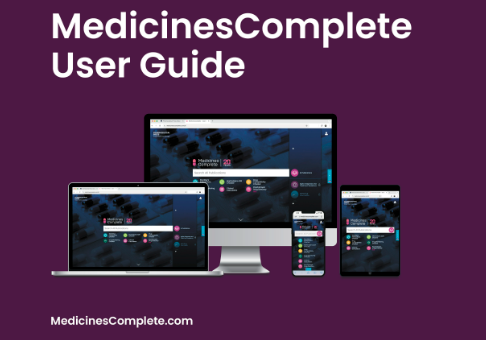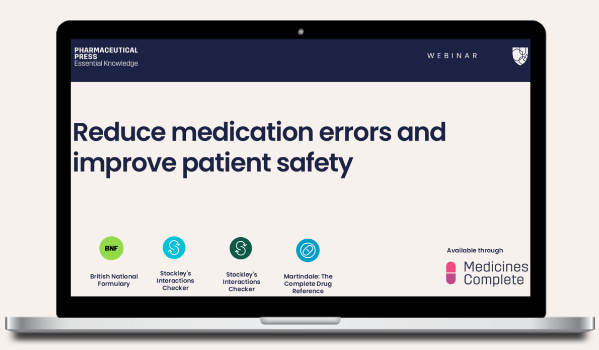Agilio: Diagnosis and Treatment Guidance December 2024 Update
This update contains 8 significant changes, 15 minor changes and 1 new topic.
Significant changes:
- Bedwetting (enuresis) — reviewed and updated. A literature search was conducted in November 2024 to identify evidence-based guidelines, UK policy, systematic reviews, and key randomized controlled trials published since the last revision of this topic. No major changes to the recommendations have been made.
- Blepharitis — reviewed. A literature search was conducted in July 2024 to identify evidence-based guidelines, UK policy, systematic reviews, and key randomized controlled trials published since the last revision of the topic. No major changes to clinical recommendations have been made.
- Hirsutism — reviewed and updated. A literature search was conducted in October 2024 to identify evidence-based guidelines, UK policy, systematic reviews, and key randomized controlled trials published since the last revision of this topic. No major changes to the recommendations have been made.
- Infectious mononucleosis (glandular fever) — reviewed. A literature search was conducted in October 2024 to identify evidence-based guidelines, UK policy, systematic reviews, and key randomized controlled trials published since the last revision of the topic. The topic title has been changed from Glandular fever (infectious mononucleosis) to Infectious mononucleosis (glandular fever), to reflect common terminology in the literature. The age cut-off below which to arrange Epstein-Barr virus (EBV) serology testing in children has been changed from 12 years to 4 years, in line with the Public Health England publication UK Standards for microbiology investigations. Epstein-Barr virus serology(PHE 2019). The information on treatments which are not recommended have been removed from the Management section.
- Psychosis and schizophrenia — reviewed. A literature search was conducted in October 2024 to identify evidence-based guidelines, UK policy, systematic reviews, and key randomized controlled trials published since the last revision of this topic. There were no major changes to the recommendations.
- Raynaud’s phenomenon — reviewed. A literature search was conducted in September 2024 to identify evidence-based guidelines, UK policy, systematic reviews, and key randomized controlled trials published since the last revision of this topic. The recommended dose of sustained-release nifedipine for drug prophylaxis has been amended, in line with the consensus best practice pathway of the UK Scleroderma Study Group (2015). The prescribing information section has been updated and expanded, in line with current Prodigy style. No major changes to recommendations have been made.
- Trichomoniasis — reviewed. A literature search was conducted in September 2024 to identify evidence-based guidelines, UK policy, systematic reviews, and key randomized controlled trials published since the last revision of the topic. There have been minor structural changes to the topic. Information on the risk factors, prognosis, and differential diagnosis have been added. There have been changes to the recommendation on the diagnosis of trichomoniasis to include information on sampling using nucleic acid amplification testing. There have been no major changes to recommendations on management.
- Styes (hordeola) — reviewed. A literature search was conducted in July 2024 to identify evidence-based guidelines, UK policy, systematic reviews, and key randomized controlled trials published since the last revision of the topic. No major changes to the recommendations have been made.
Minor updates:
- Cellulitis — minor update. A recommendation to advise people to use emollients to prevent dry and cracking skin has been added to the management section.
- Contraception – progestogen-only methods— minor update. Information that the depot medroxyprogesterone acetate (DMPA) intramuscular injection can be given every 13 weeks, but this dosing interval is off-label, has been added to the Summary, in line with the FSRH guideline Progestogen-only injectables. Information on follow-up for people taking drospirenone with mild/moderate renal insufficiency or with treated hypoaldosteronism has been added in line with the FSRH guideline Progestogen-only pills.
- Constipation — minor update. Information that naldemedine is an option for people with opioid-induced constipation has been added in line with the NICE technology appraisal Naldemedine for treating opioid-induced constipation.
- Diabetes – type 2— minor update. Added information regarding the need for further evaluation of black people with known or potential sickle cell trait and the interpretation of HbA1c results, which may underestimate past glycaemia.
- Endometriosis — minor update. The diagnosis section has been updated in line with the updated NICE guideline Endometriosis: diagnosis and management.
- Epilepsy — minor update. Clarification of use of copper intrauterine devices to be preferred for women of childbearing age receiving enzyme-inducing antiepileptic drugs.
- Immunizations – seasonal influenza — minor update. Minor typographical error corrected in the summary section.
- Menopause— minor update. Updated to reflect the new guidance in NICE Menopause: identification and management [NG23], November 2024. Specifically relating to the risk and benefits of HRT.
- Menorrhagia (heavy menstrual bleeding) — minor update. The drug interactions section for tranexamic acid has been updated.
- Migraine— minor update. Wording update to information regarding atogepant to align with NICE technology appraisal.
- Osteoporosis – prevention of fragility fractures — minor update. Recommendations from the updated National Osteoporosis Guideline Group (NOGG) Clinical guideline for the prevention and treatment of osteoporosishave been incorporated into this topic.
- Palliative care – constipation — minor update. Information that naldemedine is an option for people with opioid-induced constipation has been added in line with the NICE technology appraisal Naldemedine for treating opioid-induced constipation.
- Seborrhoeic dermatitis — minor update. Revised advice on the potency of topical steroids to use when treating seborrhoeic dermatitis.
- Shingles — minor update. Added further link to management of people with shingles of the head and neck advising specialist management or admission to hospital.
- Urinary tract infection (lower) – women — minor update. Added information on MSU screening at booking appointments in intermediate and high-risk pregnancies to align with the NHS England document Saving babies’ lives: version 3 A care bundle for reducing perinatal mortality.
New Topic:
- Functional neurological disorder — new topic. A literature search was conducted in August 2024 to identify evidence-based guidelines, UK policy, systematic reviews, and key randomized controlled trials. The evidence base has been reviewed in detail, and recommendations are clearly justified and transparently linked to the supporting evidence.





